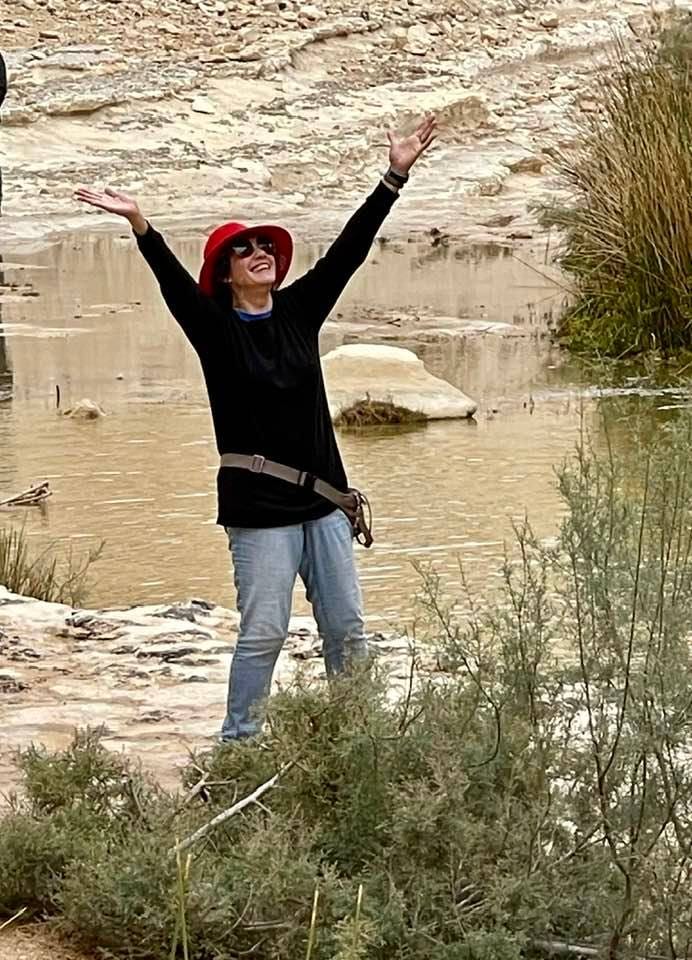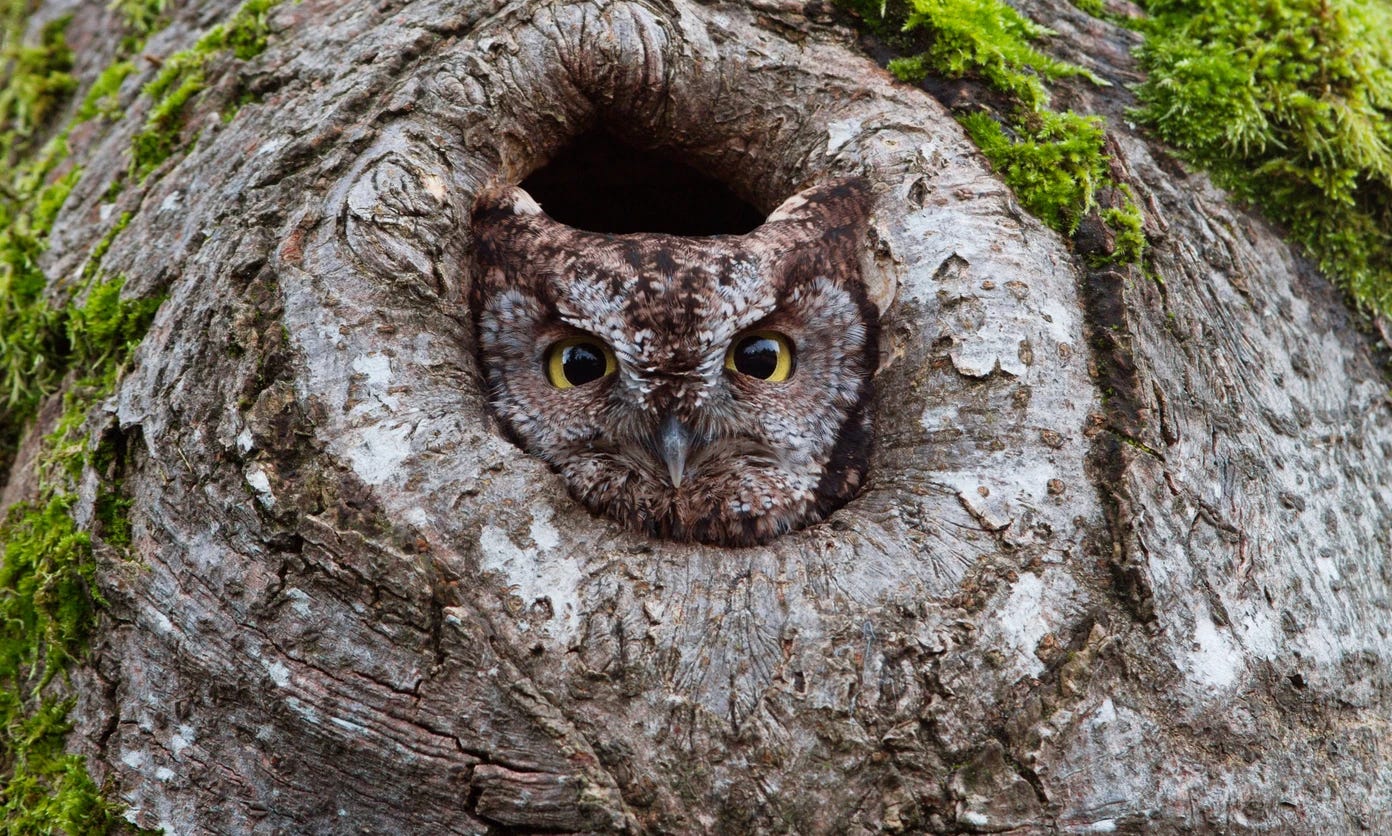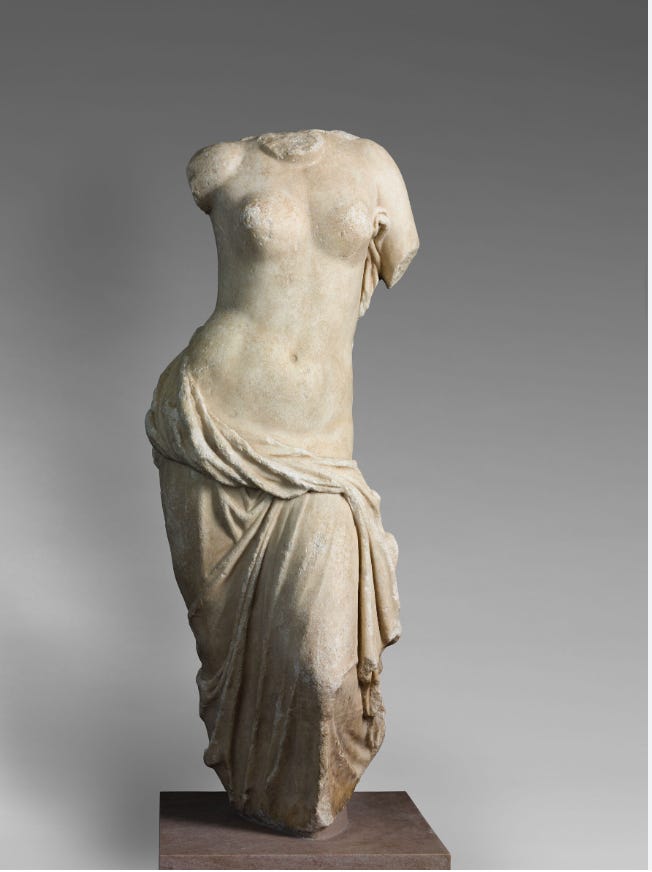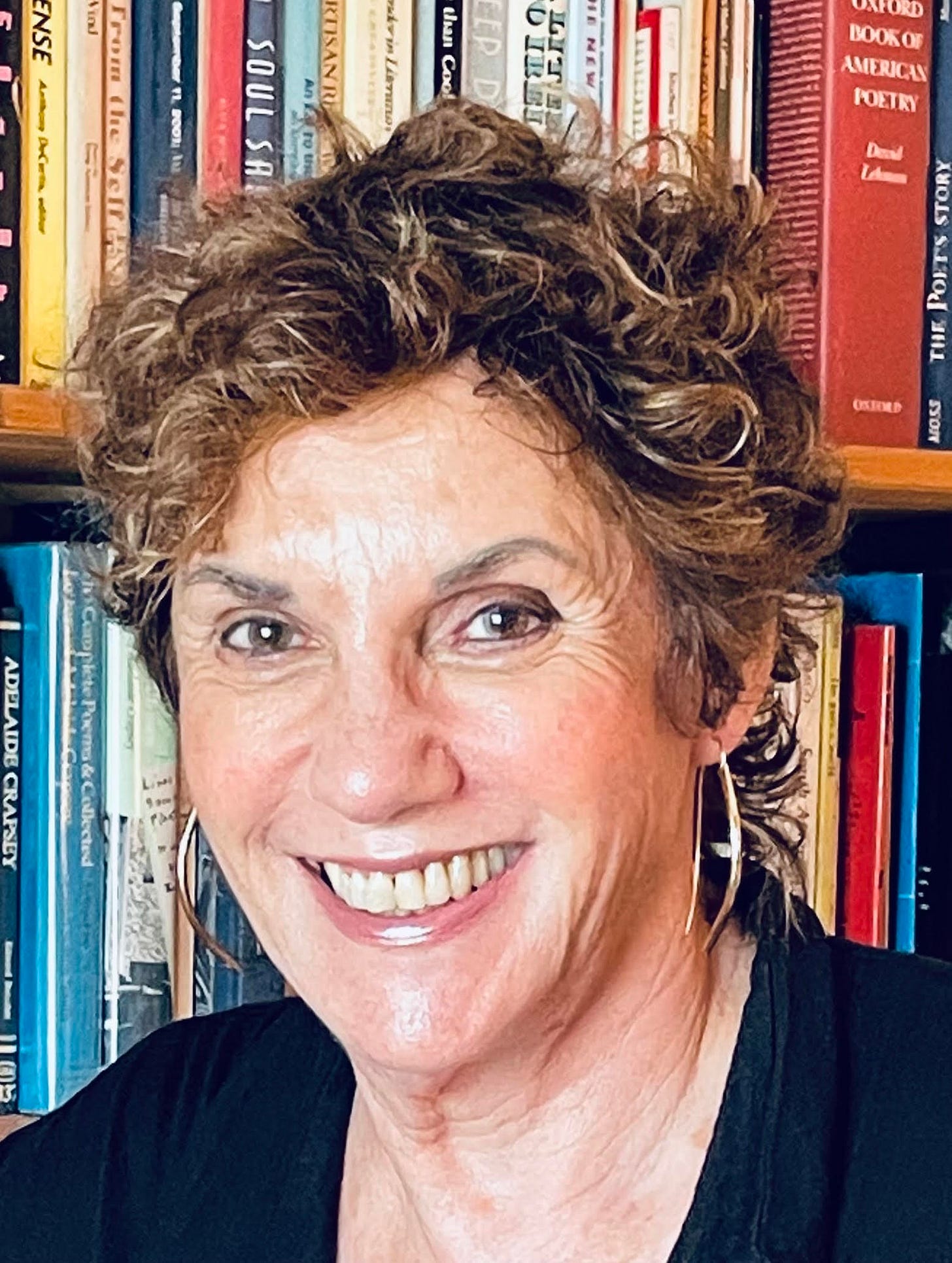Back to war. Back to sirens and safe rooms. In rain and wind the Gazan people on the move again, nothing between them and the fighter jets that fill the sky than a cloth tent. And our leaders continuing their threats as the hostages linger wounded, starving and unsaved. In the US a new blood libel just beginning as pro-Hamas demonstrators are expelled from university and even deported without due process “for the good of the Jews.” As things go speedily from worse to worse, it is only poetry that will sustain us. And what better place to find it than in the poetry of Karen Alkalay-Gut who, with good humor and warmth, has brought and taught literature and poetry in Israel for decades, through many wars and difficult times. For Alkalay-Gut poetry endures and therefore for us too.
Lilith וּפָגְשׁוּ צִיִּים אֶת-אִיִּים, וְשָׂעִיר עַל-רֵעֵהוּ יִקְרָא; אַךְ-שָׁם הִרְגִּיעָה לִּילִית, וּמָצְאָה לָהּ מָנוֹחַ (ישעיהו לד: יד) And the screech owl (Lilith) shall rest there, and find for herself a place of rest. (Isaiah 34 14) This is where I repose, in my moldy castle overgrown with thistles surrounded by beasts dragons as my pets coupling vultures surround my lair. I could have chosen a predictable path dawdling among the chosen ones, perhaps preventing the entire fall with just a bit more wisdom than the other woman But since the whole world has fallen into turmoil I am much happier this way, a lone screech-owl in hell
Interchangeable Women
In the last hostage transfer
the body of a woman
is restored to her country.
She is not the promised
mother of the babes
who were returned with her.
Who could she have been?
Was she a twin?
Did she have toddlers as well?
Who missed her corpse?
No one waited, claimed
her return.
On our wall
is a painting
of a statue
the headless torso
of a woman
without limbs
The artist is well-known.
The painting
is valuable
all her beauty
is in a fragment -
one element
of her
entire
being.Remains
Three of my aunts escaped shooting
when the last guards
abandoned the camp.
Hasia, the youngest, convinced the fleeing soldiers
to defy their orders to kill the prisoners,
and save their remaining bullets
to defend themselves against the Russians.
The other sisters never spoke of this,
or the long weeks’ walk in rag-wrapped feet
or of the mother they tried to protect
but of whom there was nothing left
to rescue or leave behind.Housing Refugees
I remember his wrinkled raincoat,
A mole low on his cheek,
and the Hershey bar he brought me
each time he came to talk with my parents.
I’d sit on his lap, a rare trust for me,
until they would close themselves up
to whisper in the dining room.
All I knew was his name was Sam.
Each time after he left,
a strange family would appear
to live with us for a while
and sleep in the rooms in the attic.
One, perhaps the first, stays in my mind
unmoving like a snapshot –
fading at the back door:
carrying a small, patched valise.
A humbled, moustached father,
slender braid-wound mother,
and a girl named Margot.
Eleven years old with a fine blond bob.
But I could learn nothing more.
She paid me no attention
perhaps because I spoke no German,
and we were not of their class.
Other families who came
after each Hershey bar
stayed longer, sometimes months,
before they found work, home, school.
Before their pride returned
and they could feel life pumping
in their withered limbs
“Do not distain me!”
The toothless old woman cried,
When I was old enough to jeer --
Her bald head covered by a slipping scarf.
“I am for more important than you know.”
I was probably twelve, and tired
Of the foreign language women
Who continued in their old ways
In a new land, tired of the tales
of greatness in rags.
Years later I learned
that all their tales
were true.
Sam never told me
of the agonies he hid
behind the sweetness
of the Hershey bar. Daphne
I’d rather be a tree
than have you enter me.
At least this way I’ll be a home
for birds and song instead of weeping.
Once you crush me and throw me away
I’ll have nothing to give the world.
I’d rather grow roots than keep running away.
At least this way I can choose what I give.
Otherwise I’d have to beg you to remain,
save my honor, stay a month,
a day, an extra hour. At least now
I don’t have to explain
why I’m alone in my shame.
So let there be
one less beleaguered girl
in this world
and one more blossoming
laurel Lokshen
“How can you ever marry
If you don’t know how
to roll out a sheet of noodles?”
My grandmother would complain
to her daughters. And my mother
would laughingly recount
the skills considered then essential
to a bride. The simple things –
sewing an even stitch,
rustling up a tasty borsht
with sour cream, kashering
a chicken – were assumed.
But unravelling knots of yarn,
invisibly mending stockings,
those were the tests
of endurance: quieting
a fussy child while sweeping out
a muddy floor in mid-winter,
Keeping accounts, managing
the little family business, so the husband
would have time to study and pray
at least three times a day.
– these challenges
would came later,
Until one day
all these essential skills
that made women
the leaders of the house
suddenly became
the source of humor
then nostalgia
and now
forgotten.Occupational Therapy
After she retired she made silly napkin holders,
a pencil cup with my daughter’s name in tiles
a few potholders, stands for hot pans on the table,
vessels, containers, crocks for ceremonial purposes
only.
Because there was nothing to put inside them,
no contents left for her to pass on, the children
having moved to different values, different lives.
Her vast wisdom seemed no longer useful, the food
she had poured onto our plates, wasted in diets.
Years after, I go past those empty years,
remembering the wisdom she transmitted
in passing, the children she wrestled
away from disaster, the wealth of creation
that leaves me empty containers to fill.Karen Alkalay-Gut was born in London, during the last V1 rocket bombing. It may well be that her entire life was shaped from that event. It was right after the seder, and her mother had just finished washing the dishes, when her water broke. “Wait until the morning, after the attack,” my father said, but she insisted there was no time, so they raced to the bombed-out hospital, and the shelter underground. That was the first lesson in wartime survival – there have been many since.
She moved with her parents and brother Joseph Rosenstein to Rochester, New York in 1948, and completed her doctorate there while immigrating to Israel in 1972. Teaching at Ben Gurion University during the Yom Kippur War and until 1976, she began working at Tel Aviv University, where she continued until her retirement in 2015. Since then she devoted herself to mentoring students and has supervised doctorates in Arabic and Yiddish Literature as well as American, British, and Irish Literature..
She is married to Ezra Gut, who constantly complains that she is always hoarding and preparing for war. They have four children who seem to have inherited this trait.
Work
In 1980 her first collection, Making Love: Poems appeared with the aid and editorial assistance of poet David Avidan, and she has published over twenty books since. Her poetry has also appeared in Hebrew, French, Arabic, Yiddish, Rumanian, Polish, Flemish, Russian, German, Turkish, Persian and Italian. Her concern with multimedia has brought about collaborations with fashion houses such as Comme il Faut, as well as sculpture, graffiti, ceremonies. Her work with musicians has resulted in a number of albums with jazz musicians, alternative rock groups, and modern classic partners. Her translations of Hebrew poetry such Yehuda Amichai and Rony Sommek have numbered in the hundreds. Her latest volume, “Surviving” about memories of the Holocaust survivors, is seeking a publisher, and she is completing a second volume of poems in Yiddish.
As a critic, Alkalay-Gut is the author of a biography of Adelaide Crapsey as well as numerous articles on Victorian and Contemporary Literature. She has participated in numerous anthologies, encyclopedias and edited volumes. She has also translated poetry and drama from Hebrew and other languages, including Yehuda Amichai, Raquel Chalfi, and Hanoch Levin. In 1980 Alkalay-Gut helped found the Israel Association of Writers in English, and functioned as chair from 1995 to 2015. She returned to chair in 2018. She also served as vice-chair of the Federation of Writers' Unions, and as an editor of the Jerusalem Review.
Alkalay-Gut has appeared in venues such as the Library of Congress and Kennedy Center in Washington, D.C., the U.N. and the Yale Club of New York City, The Einav Center, Beit Avihai, the Willy Brandt Center, Mishkenot Shaananim and the Writers House in Israel, as well as many universities, churches, synagogues and nightclubs around the world.
Alkalay-Gut was awarded the Rubinlicht Prize (2019) for her contribution to Yiddish Literature. In 2018 she was listed by the Jewish Agency for Israel as number 24 of one hundred Jews who moved from Britain to help shape the modern state of Israel. Among her previous awards are the Jewish Agency Award in 1994, and first in the BBC World Service Poetry Award (1990).
Delights!
Five Tiny Delights
1. I love writing poems.
2. Animals almost always make me happy. Meeting a chance dog on the street or communicating with my ornery cat (adopted from a dangerous existence on the streets), and hearing her loud complaints about my cooking, give me a thrill.
3. I love conversations that have no purpose but communication. No favors, no deals, no showing off, just talking.
4. I love jokes – they’re just as complex and solve as many conundrums as poems.
5. I love making people happy.
Five Tiny Jewish Delights
1. Writing in Yiddish. I feel like I’m reuniting with generations of family that want someone to speak for them.
2. Reading the Parashat Hashavua with my partner. Neither of us are observant, but I had a pretty intense biblical background, and he always has historical and linguistic insights that bring new light to me.
3. Two of my grandchildren had bar mitzvahs this year, both in Israel but in completely different synagogues – one Sephardic and one Ashkenazi. Remembering them gives me great pleasure.
4. I’m incredibly overwhelmed by archeological sites that reflect events in the Bible. Even during the Covid epidemic, when everything was shut down, seeing a synagogue in Megiddo or a mosaic of a synagogue floor in Zippori, or the seat of the Sanhedrin really connects me to history.
5. I just made cholent last week and delighted in the smell as it cooked all night.












“Sam never told me of the agonies he hid behind the sweetness of the Hershey bar.” Wow. That is just…wow.
These are poems I will read again and again...thank you!
The photos (especially the ones with your beautiful and generous smile!) are also treasures.
That photo of the upstairs (or 'attic') room is so similar to the one where Emily & I first stayed.
I absolutely LOVED the skylight window, the one that occasionally let a snowflake or two escape...while I listened to the piano music of Ravel, while smoking 'grape blend' in my hookah. Indelible memories!